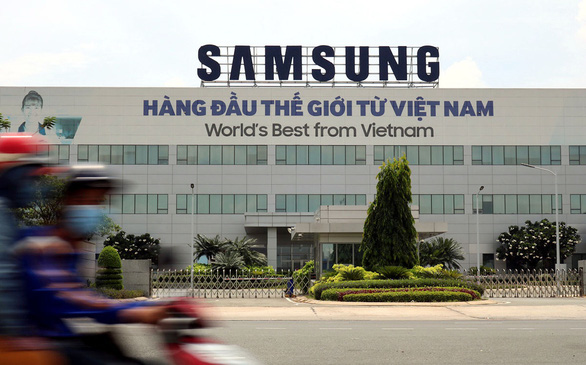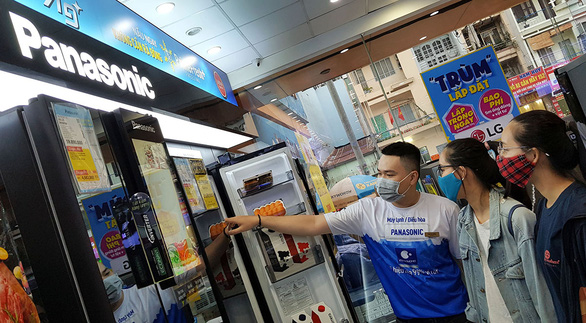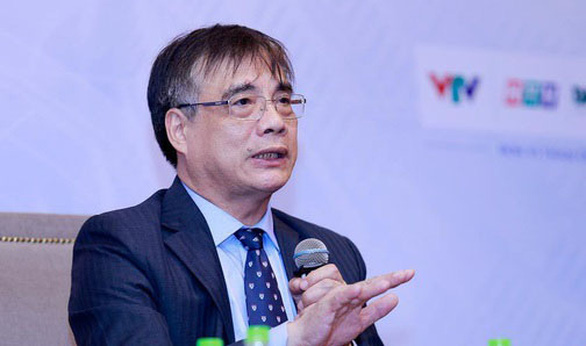Vietnam needs radical changes, not mere improvements to existing regulations, to attract foreign development investment (FDI) against the new backdrop of a post-pandemic world, according to a member of Prime Minister Nguyen Xuan Phuc’s economic advisory team.
Dr. Tran Dinh Thien, a member of the PM’s economic advisory team, told Tuoi Tre (Youth) newspaper during a recent interview that Vietnam is only one of many countries presented with an opportune moment to receive FDI inflows that are being shifted from China following the novel coronavirus disease (COVID-19) pandemic.
Japanese appliance-maker Panasonic Corp is the latest example for this movement, announcing last week its plan to move its Thai-based production of refrigerators and washing machines to Vietnam in 2021.
Likewise, Apple has reportedly shifted some of its AirPods Pro production to Vietnam from China, according to tech site The Verge.
“This is the time [for Vietnam] to change, not just to improve old regulations, so as to create good business conditions to welcome high-quality FDI inflows,” said Thien.
According to the economic expert, Vietnam has shifted its strategies in FDI attraction in the past few years, giving priority to multinational corporations that employ high and environmentally friendly technologies.
Despite these changes, Vietnam has seen the scale of its FDI projects shrink 30 percent while the number of FDI projects has grown over the past few years, the expert noted.
Vietnam is still short of important conditions, including a transparent investment environment, high-quality human resources, and attractive logistics infrastructure costs, making foreign investors hesitate to put their money into the country, Thien said.
|
|
| Dr. Tran Dinh Thien, a member of Prime Minister Nguyen Xuan Phuc’s economic advisory team, is seen in this file photo. Photo: Tuoi Tre |
While presiding over a meeting last Friday, Prime Minister Phuc agreed to establish a special task force responsible for fixing investment bottlenecks as part of the government's drastic efforts to improve the country’s business climate.
The task force, led by Planning and Investment Minister Nguyen Chi Dung, will focus on quick handling of investment procedures, particularly those related to site clearance, according to the official VGP News.
Dr. Thien suggested this task force be selective in choosing FDI projects and build a technical barrier to control FDI inflows.
“The impacts of large FDI projects shall be assessed on a national scale, as well as under high-level competent authorities’ directions, to avoid failures in planning,” Thien said.
According to the PM’s advisor, Vietnam should also prefer an FDI project’s professionalism over its scale, and projects with industrial connectivity over those with a high budget but simply providing product assembly services.
National Assembly deputy Tran Hoang Ngan, who is also the head of the Ho Chi Minh City Institute for Development Studies, said in a comment on the draft for the amended Investment Law that it is time to increase decentralization to let localities make decisions on larger-scale investment projects, with priority given to centrally-run locales capable of attracting big foreign investments.
 |
| Samsung Vietnam’s office at the Saigon Hi-Tech Park in District 9, Ho Chi Minh City, Vietnam. Photo: Hoang An / Tuoi Tre |
Investment procedures should also be shortened to help investors save time and effort, while national security and the overall national planning must be ensured, Ngan said.
At the local level, Duong Van Thai, chairman of the northern province of Bac Giang where a Foxconn factory is located, told Tuoi Tre that it is important to accompany and give assistance to foreign investors both before and after they settle their production in the locality.
The Vietnamese economy expanded 3.82 percent in the first quarter this year, the lowest of all first-quarter figures in ten years.
However, this is still a remarkable rate given the current situation all over the world, according the General Statistics Office (GSO).
Foreign investment inflows witnessed a steep fall of 15.5 percent to US$12.3 billion while the disbursed value of foreign investment capital dropped 9.6 percent to $5.2 billion in the first quarter, the GSO reported.
Like us on Facebook or follow us on Twitter to get the latest news about Vietnam!




















































